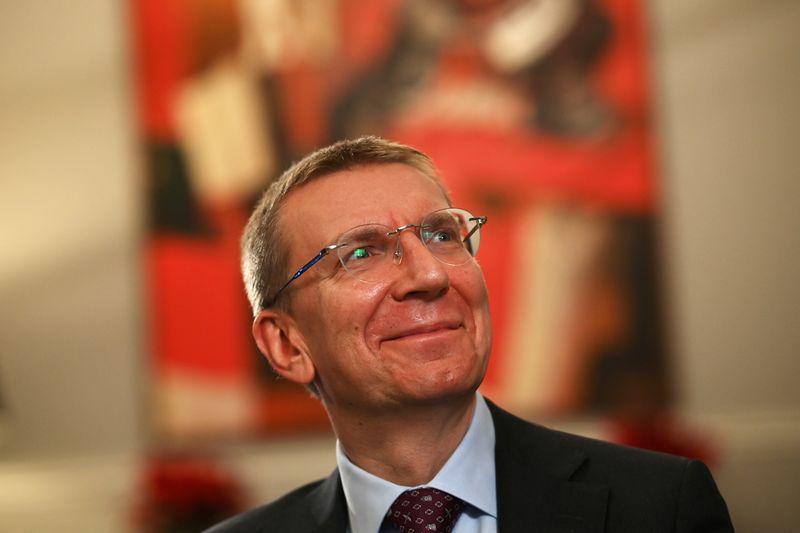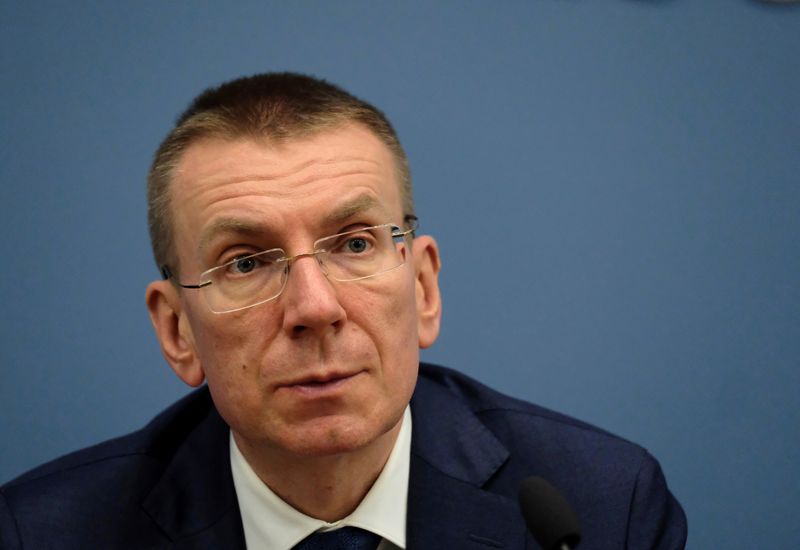By Guy Faulconbridge
LONDON (Reuters) - The West must send a strong message to Russia to deter it from invading Ukraine, including cutting Russia off from the SWIFT payment system, sanctioning the Nord Stream 2 pipeline and strengthening NATO's eastern flank, Latvia said on Tuesday.
Hours before U.S. President Joe Biden and Russian President Vladimir Putin are due to discuss Ukraine in a videoconference, Latvian Foreign Minister Edgars Rinkēvičs told Reuters: "Russia needs to know in advance what the economic price tag is."
U.S. intelligence assesses that Russia could be planning a multi-front offensive on Ukraine as early as next year, involving up to 175,000 troops. The Kremlin denies it plans to invade and says the West is gripped by Russophobia.
U.S. officials have said Biden will tell Putin that an invasion of its neighbour could see Russia and its banks hit with the toughest economic sanctions yet.
Rinkēvičs, foreign minister since 2011, said it was unclear if Putin was simply trying to test the West's resolve or if the Kremlin planned a full-scale invasion of Ukraine.
"Maybe astrology or some other more precise science needs to be involved. But I do believe that Ukraine for Russia and President Putin is an essential part of the kind of vision of a great Russia," Rinkēvičs said in an interview in London.
He said that if Russia does invade Ukraine, the West should prepare a very strong economic sanctions package, including cutting Russia off from the SWIFT international payment system used by banks around the world and sanctioning the $11 billion Nord Stream 2 gas pipeline.
The NATO military alliance should also boost its presence across Eastern Europe to deter Putin and individual NATO allies might provide arms to Ukraine, Rinkēvičs said.
"NATO needs to increase its presence in the eastern flank to show Russia that the price of doing some military adventure in Ukraine is more troops, more defence capability and underlying defence capability in the Baltic States, in Poland, in Romania, in Bulgaria," he said.
NATO has in recent years strengthened its presence in the Baltic states and across Eastern Europe, a step that has dismayed the Kremlin.
Rinkēvičs said battle groups in the Baltics should be reinforced, air defences strengthened, logistical security improved and an increased U.S. presence on the ground.

"Seeing what is happening now in and around Ukraine, we need also to review where we are with the defence of the eastern flank of NATO," Rinkēvičs said.
"That means more capabilities that could actually send a very strong deterrent message to Russia."
